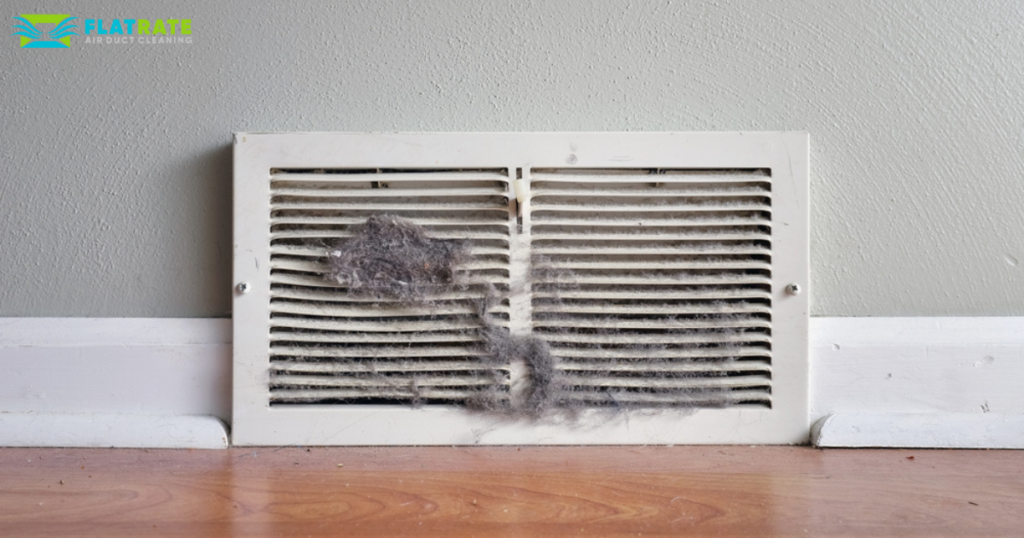Mold in your air ducts can harm indoor air quality in your house and can also cause serious health problems. Mold grows in HVAC systems, where it finds dark, warm, and moist conditions. Dirt, debris, and dead skin cells provide food for mold growth. When you find mold in your ductwork, solving this problem quickly is very important.
You must remove mold quickly to prevent it from spreading further. Recognizing the signs and taking the right steps to avoid mold is necessary. In this blog, we will help homeowners identify mold and remove it from the air duct.
Signs of Mold in Air Ducts
You may find mold in your air ducts without realizing it. Watch for signs in your home. Some of the signs are discussed below:
Black Dust
It could mean mold if you see black dust on your AC vents or ductwork. Inspect your system carefully and solve any visible issues immediately to prevent further damage.
Musty Odors
A musty odor coming from your air ducts usually means mold is present. When the AC is on, the smell gets stronger. If you notice a strange smell, check your ducts for mold.
Increased Moisture
Moisture in your ducts helps mold to grow. If you notice increased moisture or damp spots, inspect your HVAC system. Moisture often leads to mold growth, so act quickly.
Visible Mold
Your HVAC system is likely affected if you see visible mold in your air ducts. Check your filter, air handler, and ducts for mold. If you find it, call a professional right away.
Flu-Like Symptoms
Mold in your ducts can cause flu-like symptoms. Watch for headaches, fatigue, or a persistent cough. These symptoms often come from mold exposure.
Also Read: The Best Time of Year for Duct Cleaning: A Comprehensive Guide
Removing Mold in Air Ducts
Mold in air ducts can cause serious issues, so you need to remove it quickly. You can handle it with DIY options or hire a professional air duct cleaning service. Follow these steps to make removing mold easier.
Step 1:
Start by picking a mold killer. You can choose store-bought remedies or bleach mixed with water. Use bleach on non-porous surfaces, and try detergent or baking soda for porous surfaces. Some people use UV light treatments but require special equipment that professionals often use.
Step 2:
Before starting the removal process, turn off your HVAC system.
Step 3:
You must wear protective clothing, such as gloves, long sleeves, pants, safety glasses, and an N95 mask to protect yourself.
Step 4:
Clean the mold from the ducts using a fogger device. This device sprays a fine mist of mold killer into the ducts. You can rent or buy a fogger from hardware stores. Follow the directions carefully.
Step 5:
If the mold is too difficult to remove, contact a professional service. They can handle the removal process effectively.
Step 6:
After you remove the mold, clean any leftover residue from the ducts. A professional cleaner can help prevent future mold problems.
How to Prevent Mold in Air Ducts?
Follow a few important steps to prevent mold in your air ducts: Clean air ducts regularly to stop mold from growing. Change air filters often and fix leaks quickly to keep your HVAC system working well. Clean drip pans and keep humidity levels low in your home to avoid condensation.
Use a mold inhibitor or biocide to prevent mold further. These treatments will suppress any existing mold and stop new growth. Regular maintenance and prevention practices will keep your air ducts clean and mold-free.
Conclusion
Mold in your air ducts can be handled easily if you recognize early signs. This makes it easier to deal with the problem and prevent further issues. Treat the mold quickly to protect your quality of life. If you need help, contact Flatrate Air Duct Cleaning. They provide the best mold removal service and can also provide routine HVAC maintenance and air duct cleaning services.
Working with experts will remove mold and harmful debris from your HVAC system, improve indoor air quality, and keep your system in good condition.

